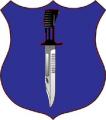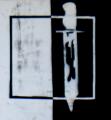In a couple of projects that I've been working on this year, I have come across very strong drivers towards what I call the PLA uniform approach i.e. only one colour and one size fits all. There are three examples that keep coming up.
The first is the drive towards 'one fuel' policies even though to achieve the efficiency of the 'one fuel' we may have to sacrifice effectiveness at the tactical level where some capabilities will not work at all or as well due to the lack of specific fuels. Capabilities driven my small capacity engines are one example e.g. lightweight motorcycles and outboard motors.
The second is the drive towards a common ammunition 'fleet', the 'all the way with 5.56' crew even though they has been some fairly robust science and operational analysis that shows that different rounds and calibres fill specific capability niches in specific operation environments. This 'oneness' seems even more ludicrous when you consider that even within the 5.56mm fleet, even ammunition types to the same specification e.g. SS109 may not work and play well in weapons from other nations.
The final instance is the drive towards unified doctrine. While obviously divergent doctrine is probably not a good thing, does a trend towards convergence in doctrinal principle and approaches not run the risk of emptying out the toll box that our commanders at whatever level should be able to reach into and select the best approach for the situation? As one researcher said last year "Does doctrinal blandness lead to conceptual laziness?"
To me, it seems that we are still reluctant to give up our rooms at the Fulda Gap Railway Station, and cast off the legacy of an industrial age military and transform into nichist force predicted in the Tofflers' War And Anti-War in the mid-90s. For twenty years since DESERT SHIELD/STORM we have been in the game of working with shake'n'bake coalitions, that might loosely be described as task-organised but it is only now that maybe perhaps we are starting to recognise the true complexity of war as a coalition where not one member is prepared to waive their national card in favour of going down a coalition path of oneness in logistics, doctrine or key policy...?
Do we need to make a concerted effort to shake the 'dumbness of oneness' at all levels and focus more on coming to grips with the internal complexity of the contemporary environment (just the coalition, never mind the bad guys)?












Bookmarks